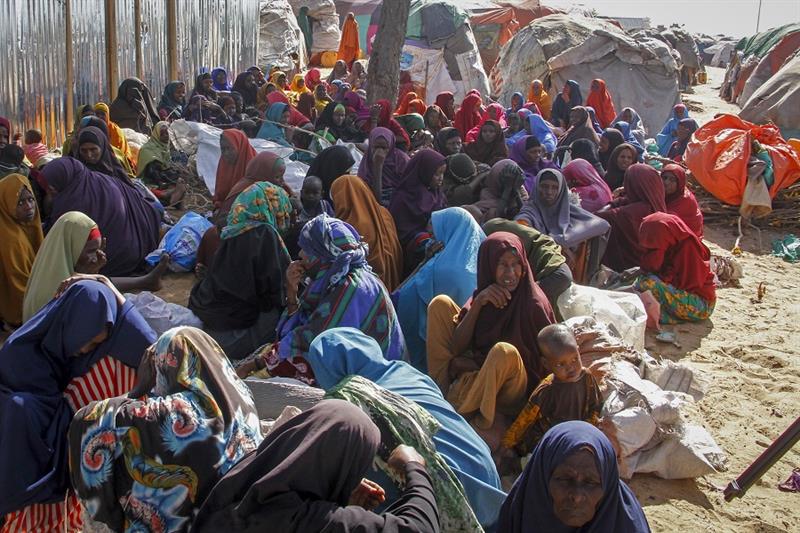
Somalis who fled drought-stricken regions sit at a makeshift camp on the outskirts of the money Mogadishu, Somalia on Feb. 4, 2022. AP
Acquiring and import-dependent countries have been intensely impacted by Russia’s invasion of Ukraine — the two countries that account for a lot more than a quarter of the world’s yearly wheat gross sales.
“It can be not so significantly about food items availability,” Mari Pangestu, the Planet Bank’s running director for development policy, informed AFP in the course of Center East and North Africa Climate Week in Dubai.
“The creation at the moment is satisfactory, no matter whether we’re chatting about wheat, rice or maize, which are the most important food merchandise.
“It really is additional about affordability. Aside from generating sure the move of items and fertilisers are not impeded, we truly will need to make sure that affordability of food for the inadequate homes is also heading to be addressed.”
Web food items importers will put up with the most from the economic repercussions of the war, according to the United Nations Meeting on Trade and Advancement, which lists 36 countries as remarkably dependent on wheat imports from Ukraine and Russia — largely in Africa and the Middle East.
Among individuals influenced are Egypt, Lebanon, Tunisia and war-torn Yemen, whose humanitarian crisis is presently regarded as the world’s worst.
Rising weather risks
Source chain challenges prompted by the Covid pandemic have promptly worsened considering the fact that the invasion, even more incorporating to the rate of food items.
The value of freight has shot up by 34 p.c because Russia invaded Ukraine on February 24, according to UNCTAD.
Pangestu, a previous Indonesian trade minister, said it was vital to manage and grow programmes to deliver meals aid, primarily in the face of mounting local climate challenges.
“This really suggests social defense techniques in international locations which are the most afflicted — to be equipped to provide assist to the weak households… and then for the farmers, to make positive they can get accessibility to fertilisers and inputs (so) they can deliver for the up coming year,” she said.
Pangestu was speaking immediately after an Intercontinental Financial Fund report released on Wednesday identified temperatures in the Center East and Central Asia have risen 1.5 degrees Celsius (2.7 Fahrenheit) because the 1990s, twice the international regular.
It warned that the location is on the “frontlines” of the local climate disaster, with meals security and public overall health in danger, and greater pitfalls of poverty and conflict.
“The slide in food output in (the Center East) area has been an issue relevant to weather adjust even prior to the (present) disaster,” Pangestu claimed, urging governments to concentrate on sustainable agriculture practises to deal with food security for a longer period-expression.
Limited backlink: